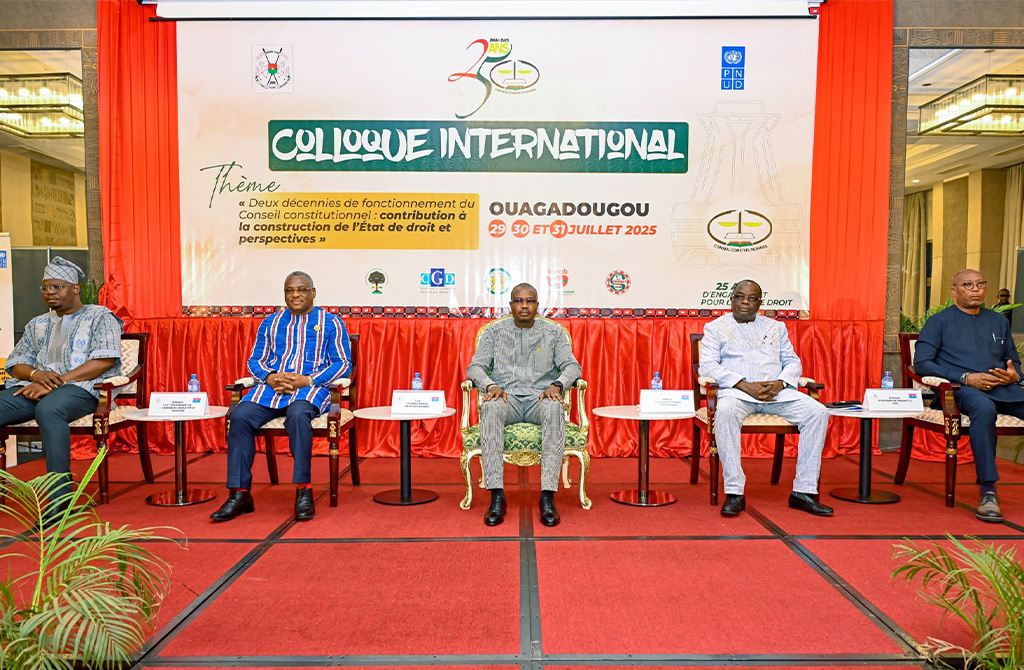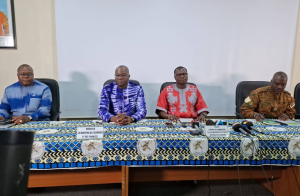Burkina Faso: Building the rule of law, assessment and challenges of a quarter century of constitutional justice

From July 29 to 31, 2025, the Constitutional Council of Burkina Faso is hosting an international symposium in Ouagadougou under the theme: “Two Decades of Functioning of the Constitutional Council: Contribution to the Building of the Rule of Law and Future Perspectives.” This event marks 22 years of effective operation since the Council issued its first opinion on March 11, 2003, following the adoption, on April 27, 2000, of the organic law defining its composition, organization, powers, and procedures.
The President of the Constitutional Council, Me Barthélemy Kéré, highlighted that the institution has experienced various fortunes over the years. At times solicited, at others criticized or misunderstood, it has nonetheless played a central role in the political, social, and legal developments of the country. Since 2003, the Council has issued more than 800 opinions, forming a rich body of jurisprudence that reflects both Burkina Faso’s institutional history and its national particularities.
The Constitutional Council is tasked with ensuring the legality of laws, constitutional revisions, elections, referendums, and the respect of fundamental freedoms. According to Me Kéré, it is the guardian of the social contract embodied by the Constitution.
Representing the United Nations Development Programme (UNDP), Eloi Kouadio IV praised this initiative as an opportunity to assess the Council’s journey, evaluate its role in consolidating the rule of law, and consider its future in a rapidly changing world. He reaffirmed the UNDP’s commitment to supporting reforms that promote democratic and inclusive governance. He also welcomed the upcoming release of preliminary findings from a study on the Council’s jurisprudence.
Presiding over the opening ceremony, Prime Minister Rimtalba Jean Emmanuel Ouédraogo—speaking on behalf of the President of Faso—called for deep reflection on the role of the Constitutional Council, particularly during this transitional period. He emphasized that the current context offers a historic opportunity to rethink Burkina Faso’s constitutional framework in line with national sovereignty aspirations and endogenous values. The Prime Minister also expressed hope that the symposium would help redefine a model of constitutional jurisdiction suited to African states, aiming for sustainable and homegrown development.







